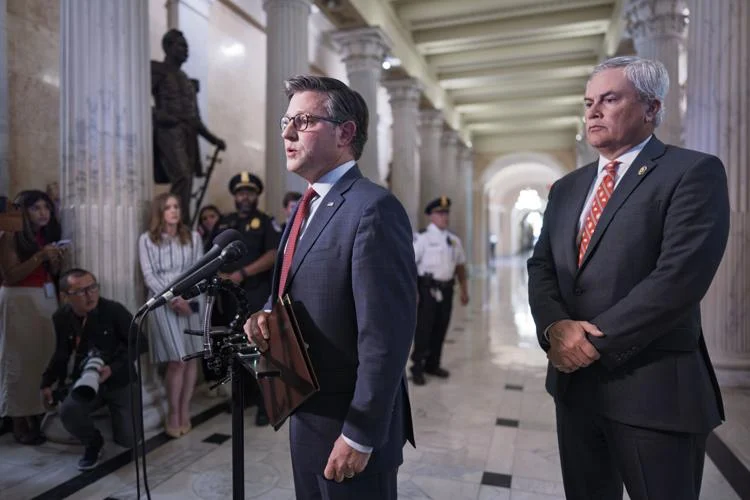The House Oversight Committee on Tuesday released files from the Justice Department concerning investigations into Jeffrey Epstein and his associate Ghislaine Maxwell. The disclosure comes amid mounting pressure from Congress to make more information publicly available on the high-profile sex trafficking cases.
Most of the released material, however, was already publicly accessible. The files, shared via Google Drive, include hundreds of images of past court filings related to Epstein, who died in a New York jail in 2019 while facing charges of sexually abusing teenage girls, and Maxwell, currently serving a lengthy prison term for assisting him.
In addition to court records, the files included apparent body camera footage from police searches, recordings, and summaries of law enforcement interviews with victims describing the abuse they endured.
The release underscores lawmakers’ determination to act on the issue as Congress returned from a monthlong recess. The move reignited political tensions that have challenged House Republican leadership and the Trump administration.
House Republican Speaker Mike Johnson is working to manage efforts from Democrats and some Republicans to pass a bill requiring the Justice Department to release all Epstein-related information, excluding victims’ personal data.
Despite the intent to inform the public, the release process was complicated. The committee uploaded thousands of pages and video files to Google Drive at 6 p.m., leaving the public to sift through the material to identify new insights.
Among the content were audio recordings of an Epstein employee telling authorities that “there were a lot of girls that were very, very young” visiting Epstein’s home. The employee could not confirm their exact ages but said more than a dozen girls visited during Epstein’s stays. The worker also described cleaning a room where Epstein gave massages twice daily.
Some documents were heavily redacted. Others pertained to Epstein’s Florida prosecution and the plea deal he received, which has been widely criticized for leniency. Emails between defense attorneys and prosecutors revealed discussions over probation conditions. One Palm Beach County prosecutor expressed frustration at the defense’s attempts to reduce restrictions, calling the deal “the deal of the century.”
Interviews with Palm Beach police officers in the files date back to 2005. Most of the text documents had already been publicly available. Notably, a probable cause affidavit and other records from the 2005 investigation had been released in 2017 through a public records request.
Rep. Robert Garcia, the top Democrat on the committee, criticized the release, saying much of the material was already public. “The 33,000 pages of Epstein documents James Comer has decided to ‘release’ were already mostly public information. To the American people — don’t let this fool you,” he said.
The release also raises questions about why the Justice Department did not directly make the material public instead of providing it through Capitol Hill.
On Tuesday, Johnson and a bipartisan group of lawmakers met with six survivors of Epstein and Maxwell. Johnson said the meeting focused on ensuring abuse like this never happens again and addressing why justice was delayed for so long. “It is inexcusable. And it will stop now because Congress is dialed in on this,” he said.
Disagreement remains over how Congress should proceed. Johnson supports continuing the inquiry through the House Oversight Committee and backing the committee’s releases. Democrats and some Republicans are seeking to bypass Johnson’s control of the House floor to force a vote on a bill mandating the Justice Department to release all files publicly.
Rep. Thomas Massie, a Kentucky Republican, has led the effort alongside Rep. Ro Khanna, a California Democrat. The bill would still need Senate approval and the president’s signature if it passes the House.
The ongoing debate reflects persistent dissatisfaction in Congress. Lawmakers from both parties continue to demand more details on Epstein’s investigation, a case that has fueled speculation and conspiracy theories since his death. Garcia emphasized that pressure will continue until survivors and victims see justice. “We’re not going to stop until we get justice for all of the survivors and the victims,” he said.

